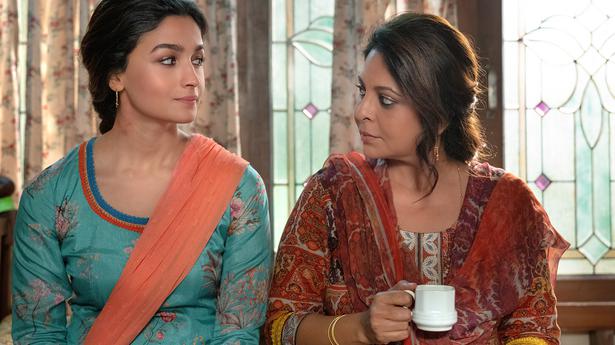
Changing portrayals
The Hindu
The representation of Muslim characters has increased in popular cinema where, their religious identity is not always a matter of friction
Since the Bharatiya Janata Party came to power in 2014, Muslims have been increasingly feeling marginalised in Indian polity.
The party has not found even a single Muslim who could win them a seat in legislative bodies and its leaders constantly dog whistle the community. They identify them through their clothes, their food habits and they have been accused of receiving a disproportionate share from the largesse of the public distribution system without repaying in terms of vote.
However, around the same time, the representation of Muslim characters has increased in popular cinema where their religious identity is not always a matter of friction. And, in the polarised atmosphere, directors are weaving symbols of communal amity in their parables.
After Partition, for a long, long time, Muslim superstars resisted playing Muslim characters. Dilip Kumar played only one Muslim character in his entire career. Shah Rukh Khan also played a Muslim character only when the story dealt with the Muslimness of the protagonist like in Chak De! and My Name is Khan. Interestingly, Salman Khan, who usually doesn’t get much credit for his craft, broke the shackles when he played Sultan (2016), a Muslim wrestler from Haryana in the Yash Raj film. Sultan Ali Khan could easily have been Suraj and it would not have made a difference to the story. Sultan doesn’t wear his religion on his sleeve and the story doesn’t delve into the religious identity of the character or his ladylove Aarfa Hussain, a wrestler who is equally hard to pin down on the mat.
Interestingly, a year before Sultan, Salman played the son of a Rashtriya Swayamsevak Sangh Pracharak in Bajrangi Bhaijaan who takes a Pakistani child to her home with the help of a Pakistani journalist.
An antidote to Gadar: Ek Prem Katha (2001) kind of divisive and reactionary narratives, it was an interesting clash of ideas that germinated from how the differences are usually more about perception than reality. Bajrangi is surprised when a genial cleric, played by Om Puri, wishes him Jai Shri Ram.
Around the same time, Sanjay Leela Bhansali mounted Bajirao Mastani, a counterpoint to Ashutosh Gowarikar’s Jodhaa Akbar (2008). Historicals in Hindi cinema are more allegorical than fact-based. In Mughal-e-Azam, Akbar and Salim represented the endless fight between monarchical control and free speech. Before the end credits roll in Jodhaa Akbar, Amitabh Bachchan’s voice tells us that Jodhaa and Akbar represent the idea of India. Bhansali turned it around as Peshwa Bajirao Ballal, a thorn in the flesh of Mughals, fought with his family to provide his Muslim muse Mastani her dignified place in the royal chambers. In Bhansali’s idea of India, the ruler is a compassionate Hindu ruler.













